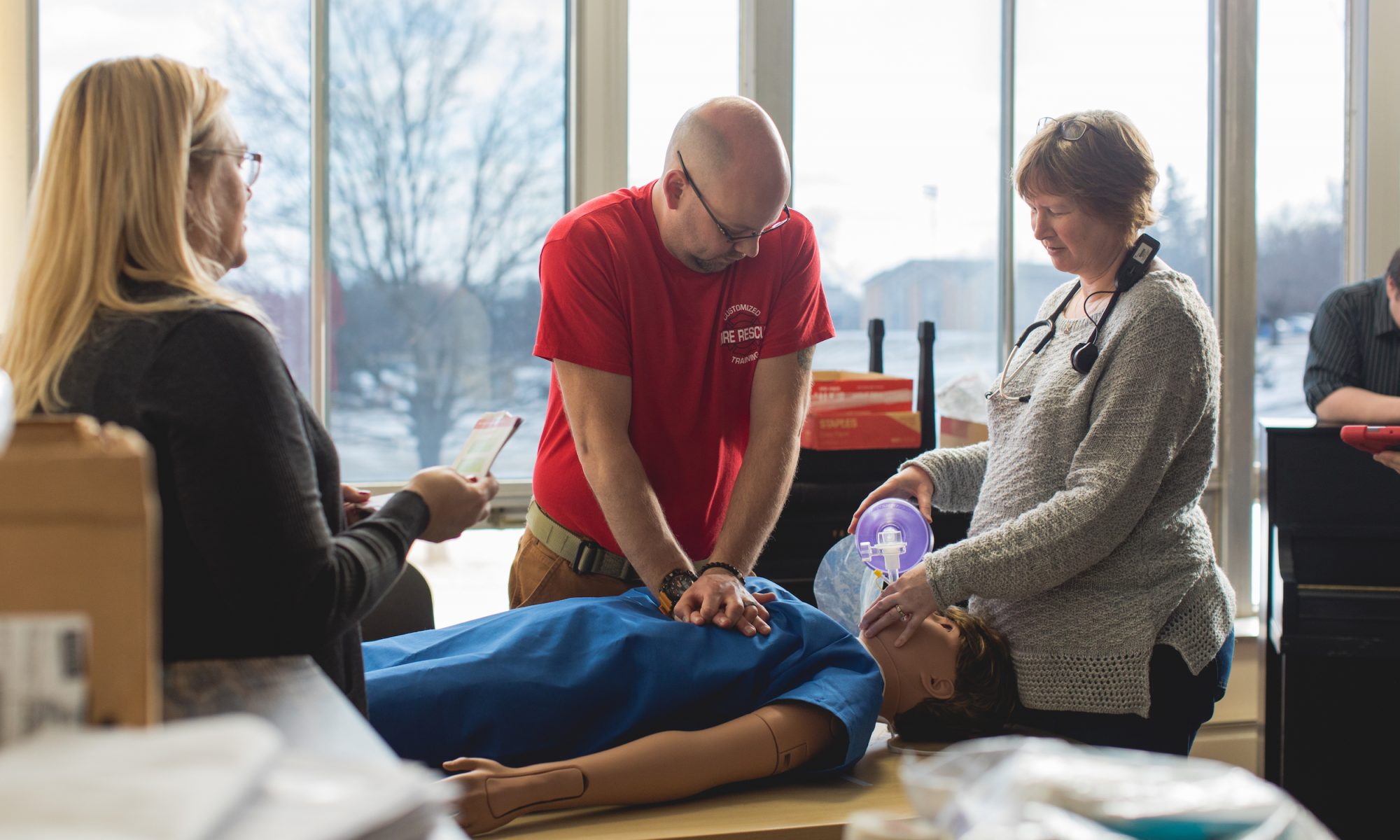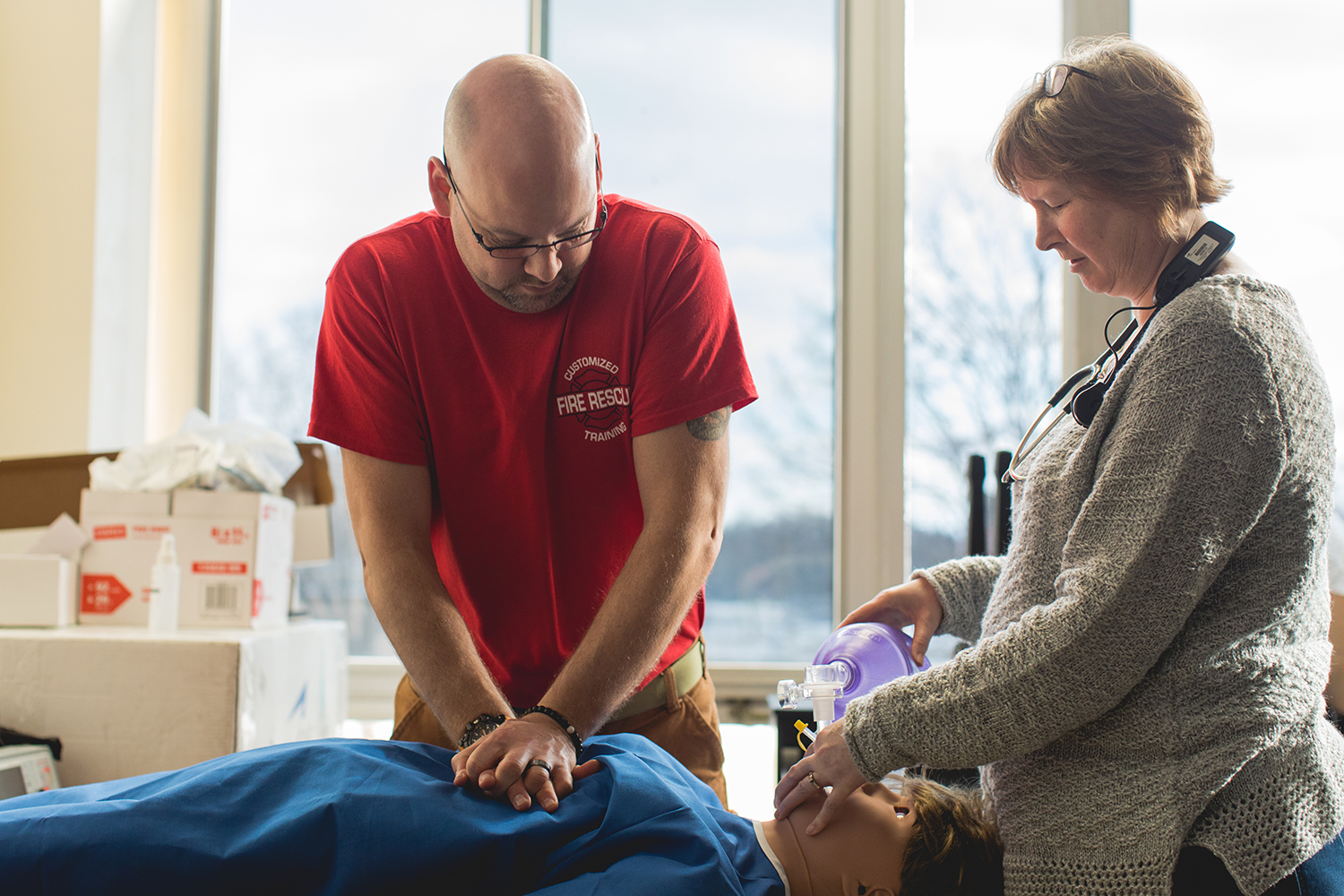Welcome,
Thank you for signing up for the combination ACLS/BLS refresher class of the EMTI (Emergency Medical Training Institute) at Crown College. We are looking forward to having you out and to offering you a fantastic day of training. Below you’ll find our intro letter to the class with a link to the pretest and other pertinent information.
Class Details:
You must possess both current American Heart Association BLS and ACLS cards to participate in this BLS and ACLS refresher class.
Mandatory Precourse Self-Assessment: Before attending the ACLS Course, students must complete the mandatory precourse self-assessment located on the ACLS Student Website. They must achieve a score of 70% or higher, and they have unlimited chances to pass the precourse selfassessment. Students must print their completion certificate and bring it to their ACLS.
elearning.heart.org/courses
Go down ( a ways) to ACLS precourse – make sure it is not the one for outside the US. Should be no cost and no code.
Agenda for the day includes reviewing the principles of ECG monitoring, reviewing videos from the American Heart Association on Advanced Cardiac Life Support. To complete the requirements for certification, there will be a written test (70% pass rate required-open book) and a demonstration of competency through simulation.
After ACLS is complete we will include an opportunity for you to refresh your BLS as well. Through demonstrating high quality CPR and respiratory interventions as individuals and within a team in a simulated environment, you will fulfill the requirements for renewing your BLS card.
*** Please note we are using 2020 ACLS and BLS books ***
Continuing Education Accreditation – Emergency Medical Services
This continuing education activity is approved by the American Heart Association, an organization accredited by the Commission on Accreditation of Pre-Hospital Continuing Education (CAPCE), for 4.75 Advanced CEHs, activity number 16-AMHA-F2-0310.
If your profession is not listed here, please contact your HR department or licensing board with any questions. The American Heart Association is accredited by the Accreditation Council for Continuing Medical Education and does not determine participants to receive credit or number of credits per course.
Emergency Medical Training Institute Instructors
Please contact the Brandy Graef at 952-446-4171 with any further questions.

